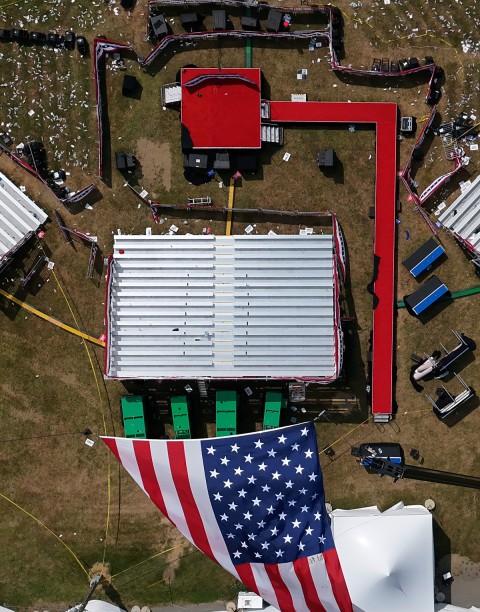Did God intervene to save Trump’s life?
Underneath this question lies layer upon layer of ever more troubling theological questions.

The site of a campaign rally for Republican presidential candidate former President Donald Trump on July 15, 2024, in Butler, Pennsylvania. (AP Photo / Gene J. Puskar)
How to do the theology of a presidential assassination attempt:
- Believe that God is all powerful, is in control of everything that happens, and takes a special interest in US politics.
- Believe that God can override free will whenever God wants to or whenever it’s in the divine interest to do so, like when it concerns US politics.
- Believe that God has a special interest in the would-be target of an assassination attempt becoming the next president of the United States.
- Believe that God is capable of intervening in human affairs in a way that can determine the next president of the United States while simultaneously respecting the free will of the voters.
We could keep climbing these steps, stopping when we no longer feel the need to keep going, when we feel that our theological questions have been sufficiently answered. But there’s another possibility: we might think about climbing the steps in the other direction, down to the basement. Be warned, though. It’s creepy down there, and dark, and very cold. Still, the dank, ominous basement—the structure that upholds the theological edifice we enjoy occupying—is where some of the best theology is done.
I’m using the metaphor of a basement to call attention to something that every theology teacher knows well: underneath the theological questions that we don’t know how to answer are other theological questions that we don’t even know how to ask.





